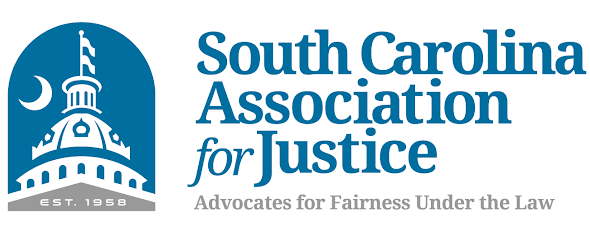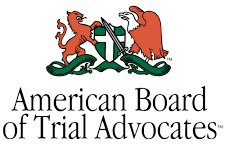No child deserves to be abused. Unfortunately, children in foster care are particularly vulnerable to a variety of abuse and neglect. Putting an end to the abuse starts with recognizing the most common signs. If your child was harmed in the foster system or you are a victim, the experienced Abbeville foster care abuse attorneys at Hite Law Firm Trial Lawyers are here to help.
What Are Signs of Abuse?
Foster care abuse happens for different reasons, but it often boils down to opportunity. Children in the foster care system are usually perceived as easier targets for those who are intending to hurt them. Alternatively, a caregiver who abuses or neglects a child may be emboldened to continue doing so because so much of the abuse goes unreported. Many children are too young, undeveloped, or afraid to speak up. This is where foster parents and others who interact with these children need to be able to recognize the evidence of abuse in foster care.
Physical abuse
This is arguably the most prevalent type of abuse and is caused by striking, shaking, burning, throwing objects at, or otherwise inflicting harm upon a child’s body. Signs may include:
- Unexplained bruises, broken limbs, or burns: While active children and teenagers do experience these injuries, the key is whether they can be explained or whether the child appears afraid or hesitant to say how they happened. Another indicator is if the injuries are recurring, which would be unusual outside of an abuse situation.
- Patterned injuries: Marks on the child that show a pattern suggest that the child was struck by something like a belt. The pattern reproduces the characteristics of the object used to hit the child.
- Unusually aggressive behavior: It’s well-documented that those who are abused tend to abuse others and, thereby, exhibit noticeably more aggression. However, if the abuse is stopped early enough, the cycle of aggression can be effectively ended.
- Discomfort with physical touch: A child who suffers physical abuse may begin to associate any form of touch, even that which is non-violent, with harm. Children who resist innocent physical interactions, such as hugs or having an arm placed around them, could be abuse victims.
- Fear of being near the caregiver: The child might verbally express fear of being in the presence of the caregiver who is abusing them. In many cases, however, the fear is suggested by flinching or other involuntary, non-verbal behavior.
Emotional abuse
Emotional abuse has mental, psychological, and developmental impacts on children that are often not evident until long after the abuse has stopped. Insults, threats, manipulation, deliberate isolation, withholding affection, and similar mistreatment may constitute emotional abuse. Signs of child emotional abuse include:
- Mental health problems: The most obvious examples are depression and anxiety. The two are often linked and have overlapping symptoms like prolonged sadness, hopelessness, worry, withdrawal, loss of appetite, and ceasing to enjoy activities he or she once loved.
- Low self-esteem: A child who doesn’t appear to have much self-regard could be experiencing esteem issues brought on by emotional abuse. Related signs include a lack of confidence and a low sense of self-worth.
- Difficulty with emotions: Children who are emotionally abused have problems regulating their feelings and often exhibit extreme emotional outbursts. It might also be difficult for them to show affection or trust in others.
- Poor academic and extracurricular performance: Emotional abuse is linked to poor performance in school, so failing grades and lack of attendance could be signs. An abused child is also less likely to excel at sports and extracurriculars.
Sexual abuse
An especially egregious form of abuse in foster care is sexual. This type of abuse comes in the form of rape, molestation, child pornography, sex trafficking, exposing oneself to children, and other related behaviors. Tragically, foster children who are sexually abused sometimes suffer repercussions for the rest of their lives. Watch out for these signs:
- Risky activities: A sexually abused child may, with time, engage in risky behaviors like promiscuous sex or abusing other children. This risk doesn’t have to be sexual, however, and could be evidenced by substance abuse.
- Sudden behavior and personality changes: A loss of appetite, decreased hygiene, and changes in clothing preferences are also indicators. But the abused child might also demonstrate otherwise unexplained personality changes.
- Regression: Regressive behaviors like bed-wetting and thumb-sucking usually mean that something is wrong. Any sign that a child’s development has stopped or reversed should be taken seriously.
- Unusual sexual knowledge: Compared to their peers, children who experience sexual abuse frequently display unusual amounts of sexual knowledge for their age. Discussing these topics with other children or adults should raise red flags.
- Pregnancy and sexually transmitted diseases: If someone engages in sexual activity with the child, pregnancy and sexually transmitted diseases may result. This is some of the starkest evidence of sexual abuse.
Neglect
A sometimes overlooked form of abuse is neglect, whereby the foster caregiver fails to provide for a child’s physical, medical, emotional, and educational needs. Whether due to carelessness or intentional disregard for the child’s well-being, neglect can inflict great harm. Examples may include:
- Physical neglect: Malnourishment, dehydration, unsanitary living conditions, and lack of shelter are strong signs of neglect. This category covers anything that amounts to deprivation of the necessities to live.
- Medical neglect: Not taking a child to address his or her health needs is neglect. This also comes in the form of failing to administer required medication or treat ongoing medical conditions.
- Emotional neglect: Some children need counseling and other treatments to deal with emotional or mental health issues. Caregivers should work to meet these needs.
- Educational neglect: Children need a sound education, as well as the home conditions necessary to thrive. Not allowing the child sufficient sleep or the ability to complete homework may amount to educational neglect.
Contact an Abbeville Foster Care Abuse Lawyer
At the Hite Law Firm, we want every child to thrive and reach their full potential. Putting a stop to the various kinds of abuse in foster care can reverse the harm done to children and set them on a path to personal growth and success. If you believe a child is being abused or neglected by a foster caregiver or if you have been a victim of this behavior, call us today.







